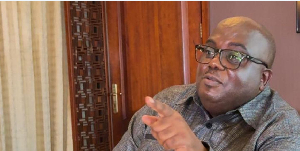Ghana has secured $9.75 million from the Climate Investment Fund’s (CIF) Forest Investment Program (FIP) to undertake a forestry preservation project.
The funds would be used to commence the Engaging Local Communities in REDD+/Enhancement of Carbon Stocks (ELCIR+) project.
The ELCIR+ project will help reduce deforestation and forest degradation, increase carbon stocks and reduce poverty by engaging communities in land management approaches that generate financial and environmental benefits for them.
The project will pilot a jurisdictional approach to REDD+ at the regional level focusing on the Western and Brong Ahafo regions.
Twelve thousand people, half of them females, will receive capacity-building support, seeds and equipment, and financial incentives through benefit-sharing agreements to develop forestry, agro-forestry and alternative livelihoods activities.
An additional 175,000 people will indirectly benefit from the project.
Ghana secured the funds with the support from African Development Bank (AfDB).
Albert Mwangi, AfDB’s Task Manager for the project, in a statement, said with the approval of the project, Ghana can exponentially ramp up sustainability of its forest sector and ensure that forest-related communities are both recipients and creators of effective and climate-smart economic solutions.
“The project builds on the AfDB’s history of support in Ghana for sustainable forest management to generate positive environmental and socio-economic outputs.
“We look forward to the lessons coming out of the project’s implementation,” he said.
The project has four components, which are support for community restoration of degraded off-reserve forests and agricultural landscape; promoting climate-smart and environmentally responsible cocoa and agro-forestry systems; support for community alternative livelihoods and capacity-building for government and local communities and support for project management and Monitoring & Evaluation.
The project design was developed in line with FIP requirement through an intensive stakeholder consultation process that included the timber industry, woodworkers associations, plantation developers, cocoa farmers and those involved in charcoal production.
Others included agriculture and finance, civil society and community organizations such as forest fringe communities, NGOs specializing in the environment, climate change, natural resources management and community development.
Business News of Friday, 4 October 2013
Source: Daily Guide
Ghana gets $9.7m for forest preservation

Opinions











